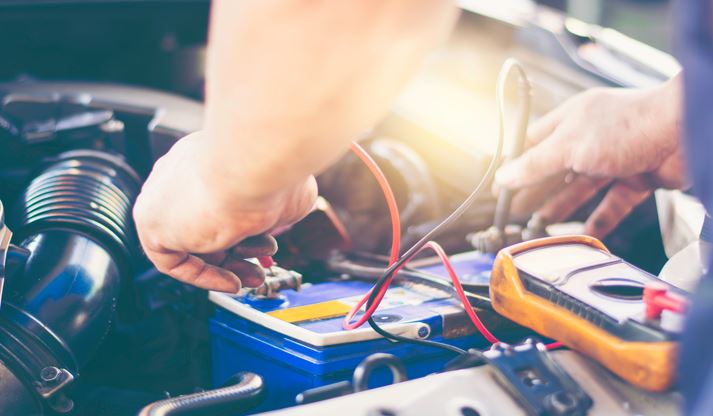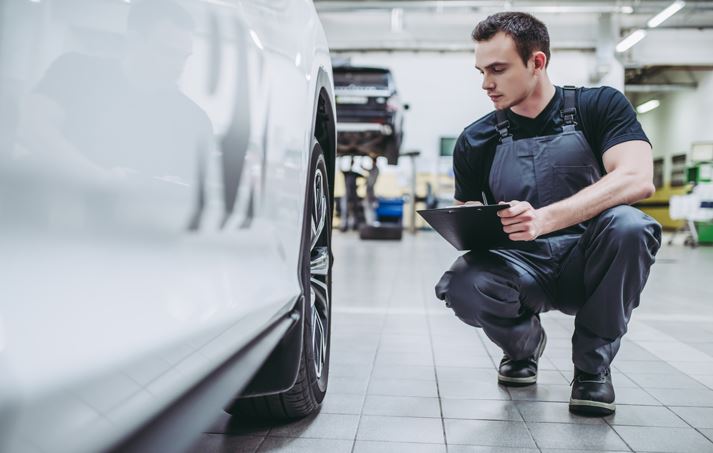Proper car maintenance is not only effective in reducing your chances of breaking down but is also one of the best ways of keeping your vehicle looking fantastic for years. Because of a lack of knowledge of car maintenance, beginner drivers often experience problems with their vehicles. To prevent unnecessary issues, new drivers should learn essential maintenance tips. Investing in preventative maintenance can lead to long-term savings, and it can make your vehicle a lot safer to drive. Our guide explores the most important car maintenance tips to teach new drivers. From purchasing standard protective equipment to brake pad protection, these are actions that all beginner drivers should know.
1. Regular Servicing Is Crucial
Regular servicing is vital for several reasons. It keeps your engine running smoothly and efficiently, lowering the chances of failure or a breakdown, which leads to costly repairs and replacements. While regular servicing costs money, avoiding it can cost you more money over the long-term. If you don’t change your engine oil regularly, sludge can gather, which stops the engine from being lubricated properly, leading to engine failure. The cost of repairs for wear and tear or engine damage typically outweighs servicing costs. New drivers should ensure they hire a professional mechanic to perform a service every 3,000-5,000 miles. However, if your BMW has been off the road for an extended period, it may need servicing before you drive it again. Idle vehicles often develop problems such as a dead battery and flat tires.
2. Maintain the Condition of Tires
Maintaining the condition of tires is particularly important for new drivers. Tires are the point of contact between the road and your vehicle, giving driver’s grip and stability. When tires get worn, they develop weak points, which increase the chances of a blowout, skidding, or hydroplaning. Monitor the condition of your tires regularly. Look for scratches, bumps, cracks, and bulges and ensure no nails, twigs, or stones are stuck in the threads. Although all drivers should replace tires when they’re damaged, it is especially crucial for beginners. While new tires can be expensive, they will make your vehicle much safer. Tire pressure is measured in pressure per square inch (PSI). For most modern vehicles, the recommended PSI is around 32 to 35. However, you should always check the owner’s manual to find the exact specifications for your vehicle.
3. Monitor Essential Fluid Levels
Car engines contain several essential fluids that are integral to them running smoothly. Beginners don’t need to know exactly what these fluids do, but they must be aware of them and monitor their levels. The essential fluids to look out for include engine fluid, transmission fluid, coolant, brake fluid, power steering fluid, gear fluid, and differential fluid. Ask your mechanic to check all fluid levels during servicing. Lights on your BMW’s dashboard may indicate if there is a fluid-related issue.

Source: CC7 / Shutterstock.com
4. Keep an Eye on Battery Health
The condition of a car battery can be easy to ignore. It is generally a durable item that you may not think about often. However, an unhealthy battery can let you down at the worst possible moment, leaving you stranded on the roadside. The most effective approach to maintaining a healthy car battery is to test it every year. Although load testing can be carried out manually using a multimeter, beginners are better off having their battery tested by a mechanic. Avoid leaving your BMW idle for extended periods and keep your battery clear of dirt and debris. Most car owners should replace their car battery every four years.
5. Invest in a Quality Car Cover
Vehicles can experience significant damage from the natural elements. Rain, frost, ice, and snow can develop on the vehicle exterior or engine, causing rust. Wind can also cause damage by blowing loose debris into a parked car. Car owners who live near sand or sea can experience rusting on their vehicles. This not only affects the aesthetic of cars, but it can also cause severe damage to the engine. Investing in a quality car cover can reduce wear and tear significantly. As well as protecting your BMW from the elements, it prevents accidental scratches and makes your vehicle harder to break into, which is a deterrent to burglars.
6. Replace the Air Filter
Beginner drivers often overlook the importance of replacing the air filter in their cars. While it might seem like an insignificant car part, the air filter plays a vital role in engine maintenance. It stops potentially hazardous debris from getting at the engine, radiator, and other engine components. If you don’t replace your air filter regularly, these particles may disrupt your engine’s performance, which could lead to damage. Beginners will be glad to know that air filters are inexpensive and are easy to replace. Additionally, you can save money by cleaning them and reusing them. There is no golden rule regarding how often you should replace an air filter since your location and environment have a major impact. Air filters are usually white, so if yours appears dirty, it needs replacing.

Source: 4 PM production / Shutterstock.com
7. Check the Brake Pads
Worn brake pads can be extremely dangerous for new drivers. Although you should notice when they’re not working correctly, gradual wearing can be difficult to detect. Key indicators that your brake pads are worn are if you hear brake noises or if you feel vibrations from the pedal when you hit the brakes. While new drivers may struggle to identify a worn brake pad from looking at one, there is another visual cue to look out for. If you notice dust accumulation on your wheels, it could be brake dust, indicating wear. If there is any sign that brake pads are damaged or worn, drivers should get their vehicle assessed by a mechanic immediately. Worn brake pads can extend your braking time significantly, which can cause an accident.
Never Slack on Car Maintenance
Drivers should never take a chance regarding safety and should avoid putting important vehicle maintenance tasks off. Although nobody wants to commit to expensive car checks and maintenance every year, it could save you money in the long run. It also gives you peace of mind that your vehicle is in good condition. Safe driving is all about developing good habits. The same goes for vehicle maintenance. New drivers should create a car maintenance checklist, ensuring they keep consistently high standards throughout their driving life.

